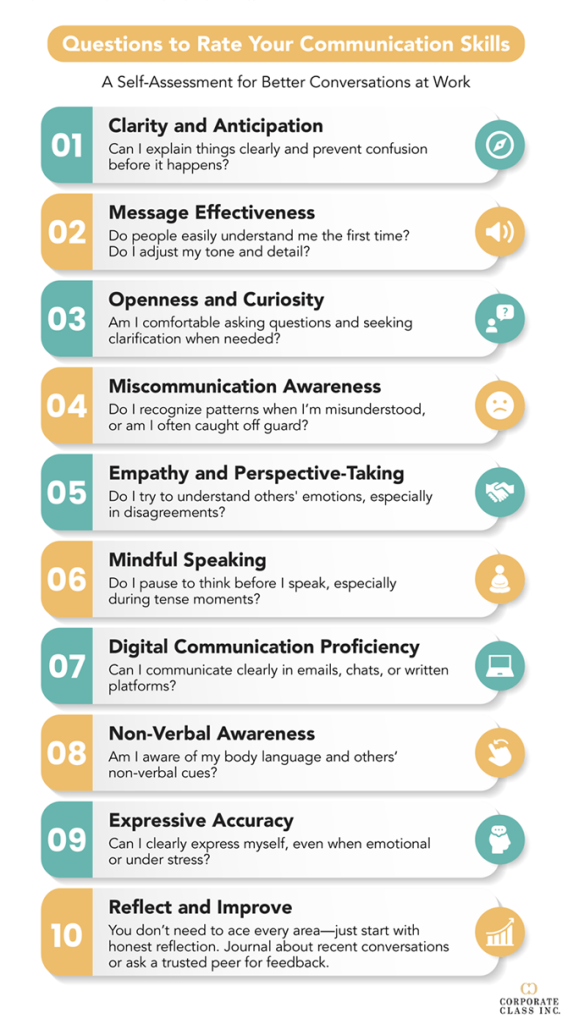Learning how to improve interpersonal communication is crucial. As important as good interpersonal communication skills are, there is no one way to measure them. If you are struggling to gain understanding with others, maintain interpersonal relationships, or get your point across, then you might need to rethink your approach to effective communication.
1. Get Rid Of Distractions
There are many distractions that influence the way you interact with others. One good example of this is the increase in smartphone use. When we are distracted by our phones, we don’t maintain eye contact, pay full attention, or listen actively. It hinders our ability to communicate effectively as part of interpersonal communication. Eliminating distractions and showing others that they have your undivided attention signals that they are an important part of your network.
2. Maintain Eye Contact
Maintaining eye contact is a big part of having meaningful, purposeful conversations. It gives the speaker the necessary validation that you are also engaged and interested in the conversation. If you keep breaking eye contact to look around, it might give others the impression that you are not interested or that you are bored. Eye contact also builds trust and mutual respect. It is, however, okay to break contact at appropriate times, as staring may also cause discomfort. This is a delicate balancing act that can be perfected with practice.
3. Let The Person Speak Uninterrupted
In most interactions, there will be clear turns for participants to respond. It is important to listen intently while someone else is speaking and wait your turn before responding. If you interrupt someone else, it might give them the impression that you do not care about what they are saying. You should also try your best not to jump in and finish someone else’s sentence for them. You may just want to show that you are engaged in the conversation, but they might feel like you are undermining them and that you think you know more than them. Another example of behaviour that can interrupt a conversation is the occurrence of distracting facial expressions. When someone is making many distracting facial expressions, we tend to focus more on the behaviour rather than on the speaker.
4. Be Aware Of Your Gestures And Posture
Body language is a crucial part of interpersonal communication that can significantly impact our ability to communicate effectively. We don’t often think about the non-verbal messages we are conveying, but these can be just as important as the verbal words we speak, especially in communication at the workplace. When we want to show genuine interest in a conversation, our body language must also be open and receptive. Some open body language includes nodding, smiling, and leaning forward. Some closed body language includes looking away, crossing your arms, and lazy posture.
5. Be Sincere
People who seem sincere have an easier time forging bonds with people around them. To be sincere, you must be aware of your own tone of voice, thoughts, and feelings to be more genuine in your interactions. Use active listening skills, empathy, and sincere body language. Take the time to understand someone else’s point of view and absorb what they are saying and respond from a place of genuine interest.
Improve Your Interpersonal Communication Skills at Work
Embrace Growth and Adaptability
In the ever-evolving workplace, interpersonal communication skills are not static; they require ongoing refinement and adaptation. Recognizing that every job and interaction offers a chance for personal growth is essential. Adopting a growth mindset encourages you to continuously hone and master your communication abilities. Being adept at gauging the mood of a room, understanding the strengths and weaknesses of your team members, and adjusting your communication style accordingly are invaluable skills.
Incorporate a Mix of Skills
Interpersonal communication is a blend of various skills, including nonverbal communication, emotional intelligence, active listening, and the ability to engage in constructive criticism and negotiation. These skills might seem challenging to develop, but with a mindful approach, you can cultivate them effectively. For instance, practice active listening in every interaction, whether it’s a brainstorming session or a casual conversation with a coworker. This practice not only improves your listening skills but also strengthens your capacity to understand and empathize with others.
Utilize Digital Tools Effectively
With the increasing use of digital tools, it’s important to master the exchange of ideas not just face-to-face but also in virtual environments. Being a strong communicator means being adept at conveying your message clearly and empathetically, whether in person or through a screen. This involves being mindful of the tone in your emails, the clarity of your messages, and the respectfulness in your video calls.
Recognize the Impact on Morale and Productivity
Good interpersonal skills positively affect team morale and productivity. As a manager or team member, being able to effectively communicate and interact with other people is a key strength. It enhances team cohesion, facilitates better problem-solving, and aids in resolving conflicts. Remember, there is always room for improvement. Being open to feedback, whether it’s praise or constructive criticism, is a crucial step in becoming a better communicator.
Take Proactive Steps for Improvement
Finally, consider setting specific goals for improving your interpersonal skills. Whether it’s becoming a better listener, a more persuasive speaker, or a more effective negotiator, identify areas where you’d like to develop. Regularly seek feedback from peers, managers, and team members, and take actionable steps to implement their suggestions. Reflect on your interactions, be aware of your nonverbal cues, and always be open to learning and growing.
There are many benefits to having strong interpersonal skills. These skills can help you build excellent personal relationships, excel in your professional career, and manage interactions in everyday life. Without these skills, simple things like problem-solving and conflict resolution can become hard to navigate.
The Leadership Skills and Executive Presence Workshop offers an all-encompassing approach to elevate your communication capabilities. This course goes into the nuances of body language, emotional intelligence, and the art of persuasion, crucial for effective interaction. These elements play a key role in ensuring your message resonates clearly and positively, fostering an environment where people feel valued and heard. Understanding how to improve interpersonal communication skills is a great start to developing your leadership presence. Our full course equips you not only with the ability to communicate effectively but also to connect and lead with confidence.











